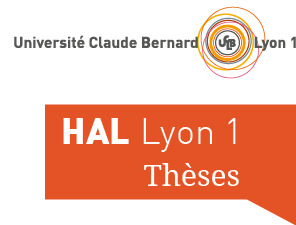Design and reactivity of homogeneous and surface-supported heterobimetallic aluminum/iridium complexes for cooperative catalysis
Conception et réactivité de complexes aluminium/iridium hétérobimétaliques en solution et supportés pour une catalyse coopérative
Résumé
The association of two distinct metals in a given complex, exhibiting intermetallic interactions, and immobilized on a solid support is an open door to new perspectives. These so called heterobimetallic architectures take advantages of metal-metal and metal-support cooperation effects that can enhance a given chemical transformation or promote new and original modes of reactivity. This PhD work is included in this context and aims to increase our fundamental understanding of heterobimetallic entities and especially homogeneous and surface-supported aluminum-iridium edifices for cooperative reactivity and catalysis. In order to selectively assemble the two metal centers, two synthetic approaches have been used in this project: the first is based on a bifunctionnal alkoxy-NHC (N-Heterocyclic carbene) ligand. This strategy successfully led to a series of monometallic alkyl-Al(NHC) species where a competitive reactivity between NHC and alkyl protonolysis is noticed. This metal-ligand cooperation is interesting but limits the access to heterobimetallic species. That is why we paid a particular attention to another approach: the alkane elimination. The reaction between an acidic iridium-hydride precursor (IrCp*H4) and basic isobutyl aluminum (III) derivatives led to the liberation of isobutane gas and to the formation of a series of heterobimetallic Al-Ir species with various nuclearities and topologies. Reactivity studies were undertaken to get insights into the nature of the Ir-Al interactions. These investigations especially revealed strongly polarized Irδ--Alδ+ pairs that are capable to promote unconventional bimetallic reductive cleavage of heteroallenes such as CO2 or R-NCO. Armed with a robust understanding about the behaviors of these molecular complexes, we transposed this knowledge to the surface organometallic chemistry (SOMC) area. Notably, the direct grafting of a tetranuclear [Ir3Al] cluster –[(Ir(Cp*)(H)(µ-H2))3Al] – onto the surface of a mesostructured silica (SBA-15) support produced a new well-defined Ir2-Al site. The post-treatment (heating, H2) of this surface species led to the formation of small Ir(o) nanoparticles (NPs) homogeneously distributed on the silica surface and surrounded with interfacial Al(III) sites. This heterobimetallic material exhibited enhanced catalytic performances for the hydrogen/deuterium exchange of methane compared to its monometallic iridium analogue, showing a promoting effect of the Al(III) site on the Ir(o) NPs.
L'association de deux métaux distincts dans un complexe donné, présentant des interactions intermétalliques, et immobilisés sur un support solide est une porte ouverte à de nouvelles perspectives. Ces architectures dites hétérobimétalliques tirent profit d’effets de coopération métal-métal et métal-support pouvant améliorer une transformation chimique donnée ou promouvoir des modes de réactivité nouveaux et originaux. Cette thèse s'inscrit dans ce contexte et vise à accroître notre compréhension fondamentale des entités hétérobimétalliques et en particulier des édifices aluminum-iridium homogènes et supportés pour de la réactivité et de la catalyse coopérative. Afin d'assembler sélectivement les deux métaux, deux approches synthétiques ont été utilisées : la première est basée sur un ligand bifonctionnel alkoxy-NHC (N-Heterocyclic carbene). Cette stratégie a permis le développment d'espèces alkyl-Al(NHC) où une réactivité compétitive entre la protonolyse du NHC et de l'alkyle est montrée. Cette coopération métal-ligand est intéressante mais limite l'accès aux espèces hétérobimétalliques. Pour cette raison, nous avons opté pour une autre approche : l'élimination d’alcanes. La réaction entre un précurseur acide d'hydrures d'iridium (IrCp*H4) avec des dérivés basiques d'isobutylaluminum (III) a conduit au dégagement d'isobutane et à la formation d'une série d'espèces hétérobimétalliques Al-Ir de nucléarités et de topologies variables. Des études de réactivité ont été menées afin de mieux comprendre la nature des interactions Ir-Al. Ces investigations ont notamment révélé des paires Irδ--Alδ+ fortement polarisées capables de promouvoir un clivage réducteur bimétallique non conventionnel d'hétéroallènes tels que le CO2 ou le R-NCO. Forts d’une compréhension du comportement de ces complexes moléculaires, nous avons transposé ces connaissances au domaine de la chimie organométallique de surface (COMS). Notamment, le greffage direct d'un cluster tétranucléaire [Ir3Al] - [(Ir(Cp*)(H)(µ-H2))3Al] - sur la surface d'une silice mésostructurée (SBA-15) a produit à un nouveau site [Ir2-Al] de surface bien défini. Le post-traitement (chauffage, H2) de cette espèce de surface a conduit à la formation de petites nanoparticules (NPs) de Ir(o) distribuées de manière homogène sur le support et entourées de sites interfaciaux Al(III). Ce solide à sites de surface hétérobimétalliques présente de meilleures performances catalytiques pour l'échange H/D du méthane que son analogue monométallique d'iridium, montrant un effet promoteur du site Al(III) sur les NPs d’Ir(o).
Domaines
Catalyse| Origine | Version validée par le jury (STAR) |
|---|
